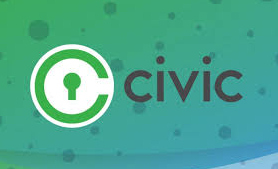Blockchain identity and the split personality of Peer Mountain
Introduction
The blockchain revolution has been ushered in by the quasi-marvellous combination between "one-way cryptographic hash functions" and "incentive economics". Prior to Satoshi matching these two in the bitcoin's design, information systems had a relatively low "coupling" with the real life. Engaging in real life interactions involved a "wet" (as Nick Szabo calls it, or soft, human) wrapping around the computers running "dry" code.
Probably the most important factor here was the nearly free replicability of computer-stored information, completely unlike the real world where most things are either unique or at least not fungible. It was precisely the state transitions and transformations of fungible goods, such as money, that were the main beneficiaries of IT systems. The main issue outstanding remained the need for a human organization, such as a bank, to guarantee that a hostile third party would not take advantage of the free replicability of data in order to "duplicate money".
Then Nick Szabo, and others such as Wei Dai proposed solutions (incomplete at that point) to transform the "1 to N" relationship between "real world money" and "computer representation of money" into a "1 to 1" relationship through the use of one-way cryptographic hash functions. Interestingly enough, one of the comments on Nick Szabo's article about Bit gold by "theantirobot" is basically describing Steemit (which makes me think that it would be cool to have Nick Szabo blog on Steemit rather than on Blogger but I'm digressing) ...
 Nick Szabo Nick Szabo |
|---|
By strongly coupling, in a "1 to 1" relationship, real world money and their bits-and-bytes "avatars" we were making the first steps in a new world where relying on a potentially untrustworthy intermediary (the bank) that increased the cost of transactions and made some transactions downright uneconomic was not needed anymore.
People's blockchain
The success of bitcoin and then of ethereum pointed clearly to the next objective: transforming the current loose coupling, "1 to N" relationship between people and their "computer representations", their "bits and bytes avatars". After the money's blockchain, the natural next step was to roll out the people's blockchain. The race toward that goal started not long ago, against a perfectly timed backdrop, the impending GDPR.
The first contender most people heard about was Civic. Recently, two more contenders matured to a point where they might well leapfrog their precursor: Sovrin and Peer Mountain
 | ||
|---|---|---|
| Civic | Sovrin | Peer Mountain |
Civic raised quite a bunch of money back in the early summer of 2017 with a little more than a short whitepaper and an app that didn't do much (if anything) as an M(Non)VP. Their ICO was valued at 33 million when bitcoin was worth around $2000 and ethereum around $200.
Sovrin in contrast has assembled a very strong team and published a solid set of papers that give an almost complete treatment of the vision, the problem and their solution. They are involved in a real life trial with a set of banks in the US (CULedger where they cover the "identity" part of the set-up while Hashgraph covers the "financial transactions" part) and have open sourced their code and donated it to the Hyperledger Foundation as Hyperledger Indy.
They have progressed at a measured, mature pace and communicated about their progress all along, with detailed papers since September 2016, papers that were not trying to obfuscate anything, in harmony with the special ethic of Bitcoin, Ethereum and other great projects. Only recently (January 2018) has a typical "whitepaper" surfaced that might indicate they are approaching the ICO.
I admit I didn't yet have time to read it, and one of the reasons is the impending ICO of their competitor, Peer Mountain.
Peer Mountain
Indeed Peer Mountain is currently running its pre-ICO KYC process (from Feb. 12th to Feb. 20th), which is pretty impressive given that I didn't hear about the project until about November 2017! Turns out they were in "stealth mode" and the CEO, Jed Grant, who I met personnally told me he has been working on this idea since before bitcoin emerged, leveraging cryptographic (Kerberos) and peer-to-peer (Kademlia) technologies which existed already and inspired several blockchain architectures.
Reading about the vision, I was very enthusiastic about the project. The paper kept talking about trust, which is a concept I am fascinated with.
Peer Mountain is a mobile-first distributed system of trust.
Peer Mountain therefore creates a trust model that makes business interactions much smoother and efficient.
But then I couldn't help but feel unsatisfied with the relative lack of "meat" in the Peer Mountain White paper which seems to use a structure similar to the one of Civic (from early 2017, when the standards were a lot lower) and lets a lot of details to the imagination of the reader. Specifically, a number of implementation choices might be seen as incompatible with one another in the absence of more detailed explanations.
What the whitepaper lacks in "meat" (especially when compared to the Sovrin library) it appears to try to make up by being slick and structured and devoting a fair part to their innovative "ICO 2.0" structure based on the concept of "Smartcap (tm)".
This has almost distracted me from noticing a fundamental difference: the name of Peer Mountain comes from the imagined structure of what looks like a powerful guild of controlling organisations.
Think of Peer Mountain as a real mountain range with vigilant border guards all around it. and access to Peer Mountain is by invitation only.
A permissioned environment which needs not be threatening - unlike the US, the mistrust toward governments and insitutions is generally lower in Europe. Yet one cannot help but ask: wouldn't those "vigilant border guards" at some point be tempted to abuse their power ? What would prevent them from doing so ?
Especially since the consumers of attestations need to pay PMT (the token) in order to access the service and The only way to earn PMTs is to be trustworthy. How is a new actor to enter the Peer Mountain ecosystem then, when his trustworthyness is still unproven, hence at zero and he doesn't have the PMT needed to pay for using the PeerMountain services? Apparently, by acquiring PMT (presumably with fiat) through regulated blockchain token trading companies
That looks a lot like a classic "walled garden", quite at the other end of the spectrum from what bitcoin, ethereum and the others have brought to the world, and reminiscent of Ripple, admitedly a very successful blockchain company. But at least Ripple's philosophy is "faster and cheaper cross-border money transfers between financial institutions", not "a distributed system of trust"!
Why the unease?
All the above elements seem disjoint or even fundamentally opposed to the concept of trust. Trust is difficult to define but it usually implies putting yourself voluntarily in a position where the other party can harm you. And when new actors enter a scene, as Peer Mountain does now, they start by definition with zero trust and need to earn it. The only way new actors earn the trust of the people with which they want to interact and establish trust is by putting themselves in a position where those people could possibly harm them. To become trusted, to receive trust, you need first to show trust towards the others yourself.

credit Virion
And this is precisely what Peer Mountain tries very carefully to avoid at every step. Starting with the disclaimer on page 2 of the white paper and culminating with the "General terms and conditions" a.k.a "Token Sale Agreement". Let's select a couple of particularly striking points:
The whole structure is governed by the
Peer Mountain DCB Limited, a privately owned company incorporated in British Virgin Islands. Peer Mountain DCB Limited was founded in British Virgin Islands and, as such, has no public financial information availableIs that the most trustworthy jurisdiction they could think of ?The token purchaser needs to agree that any dispute or claim will be determined by mandatory binding arbitration. As the terms document states (in capitals)
THERE IS NO JUDGE OR JURY IN ARBITRATION, AND COURT REVIEW OF AN ARBITRATION AWARD IS LIMITED.and moreoverThe applicable law shall be the laws of British Virgin Islands, without regard to its conflict of law.The tokens represent nothing, they will give access to a platform that the public hasn't seen yet. If the tokens are not used within 3 years of acquring, Peer Mountain can unilaterally burn them:
loss of wallet, which shall be deemed to have occurred when a wallet containing PMT tokens has been transactionless for a period of 3 years.But then, later on in the same document (and in all caps again) it is writtenAT THE TIME OF PURCHASE THE PMT TOKENS WILL NOT BE TRADABLE. PMT TOKENS WILL ONLY BECOME TRADABLE ONCE THE PEER MOUNTAIN TECHNOLOGY ENTERS INTO PRODUCTION PILOT AND PEER MOUNTAIN SECURES AGREEMENT OF REGULATED TOKEN EXCHANGES TO LIST PMT CURRENCY PAIRS ON THEIR PLATFORMS.Of course the first thought that crossed my mind was "If it takes them more than 3 years to enter production pilot, they might just decide to burn my tokens because of the 'lost wallet' clause above !"
One might say I am too paranoïd and many other token sales have in the past been conducted like that (I can think of EOS or Tezos). But then again, these were several months ago when "anything was going". None of them pretended to conduct the best, new generation "ICO 2.0". And none of them had TRUST as their central concept.
The whole construct strikes me as "split personality" : Peer Mountain keeps talking about trust while behaving as if they themselves trust nobody (not even themselves)!
Trust is about making commitments that leave you vulnerable. Peer Mountain scrupulously avoids making any commitments at all.
If you want to be trusted, you should at least hint that you are ready to trust others as well. Can you be credible as a "trust builder" when you display such thoroughness, such determination in going after and eliminating (through legalese here, not cryptography) all ground for establishing trust in your very first public outing, your ICO ?
Final thoughts
It looks from many angles as the project let the lawyers of the old, pre-blockchain world parasitize, infest and ultimately hi-jack the body of what was supposed to be a beautiful, visionary project for a better society based on trust.
(photo from "Elite Readers", a website that appropriately appears to be running CoinHive ...)
Maybe Sovrin will prove just as disappointing when I get around to read their January white paper but I ended up my investigation of the Peer Mountain project with absolutely no trust in them whatsoever.
I hope I'm wrong and the (otherwise very useful) "old world fungus" is actually there in a positive symbiosis, like in the lichen. But awaiting to be proven wrong and unnecessarily cautious, I'll say "pass" and let other people have fun with the ICO 2.0

Hi.. @sorin Posts that can affect everyone
I hope it will be widely read and discussed
You got a 1.35% upvote from @postpromoter courtesy of @sorin.cristescu!
Want to promote your posts too? Check out the Steem Bot Tracker website for more info. If you would like to support the development of @postpromoter and the bot tracker please vote for @yabapmatt for witness!
You got a 6.43% upvote from @luckyvotes courtesy of @sorin.cristescu!
You got a 7.22% upvote from @nado.bot courtesy of @sorin.cristescu!
Send at least 0.1 SBD to participate in bid and get upvote of 0%-100% with full voting power.
Poor return on investment. Can't say if it's systematic or just bad luck but Nado returned less than invested
Did you use steembottracker.con?
Thanks for reaching back nado.bot. This is a bot with an after-sale service, amazing !
Absolutely, I have used steembottracker, otherwise I wouldn't have known Nado bot exists. Steembottracker told me nadobot presents a profitable voting opportunity and I payed attention to not transfer more than the max. suggested bid from steembottracker ...
While we are at it, the animated gif is rather silly and slows down considerably older computers. At least if it wasn't animated (it would stay just as silly but without the annoyance of slowing the browser on low-RAM computers)
Cheers
Lol, thanks for your critique of my gif. I had absolutely no idea it was even remotely silly. I have removed it now, because it's so damn silly and im embarassed of how silly it is.
Great service, man ! Storm on ! :)
You got a 14.12% upvote from @minnowvotes courtesy of @sorin.cristescu!
This post has received a 25.77% upvote from @aksdwi thanks to: @sorin.cristescu.
You got a 20.24% upvote from @bid4joy courtesy of @sorin.cristescu!
You got a 12.42% upvote from @upmewhale courtesy of @sorin.cristescu!
And a very bad deal you gave me on that too ... :( Wondering if this is always the case and I should avoid this bot or it was just bad luck ...
10.89% @pushup from @sorin.cristescu
You got a 6.41% upvote from @mercurybot courtesy of @sorin.cristescu!